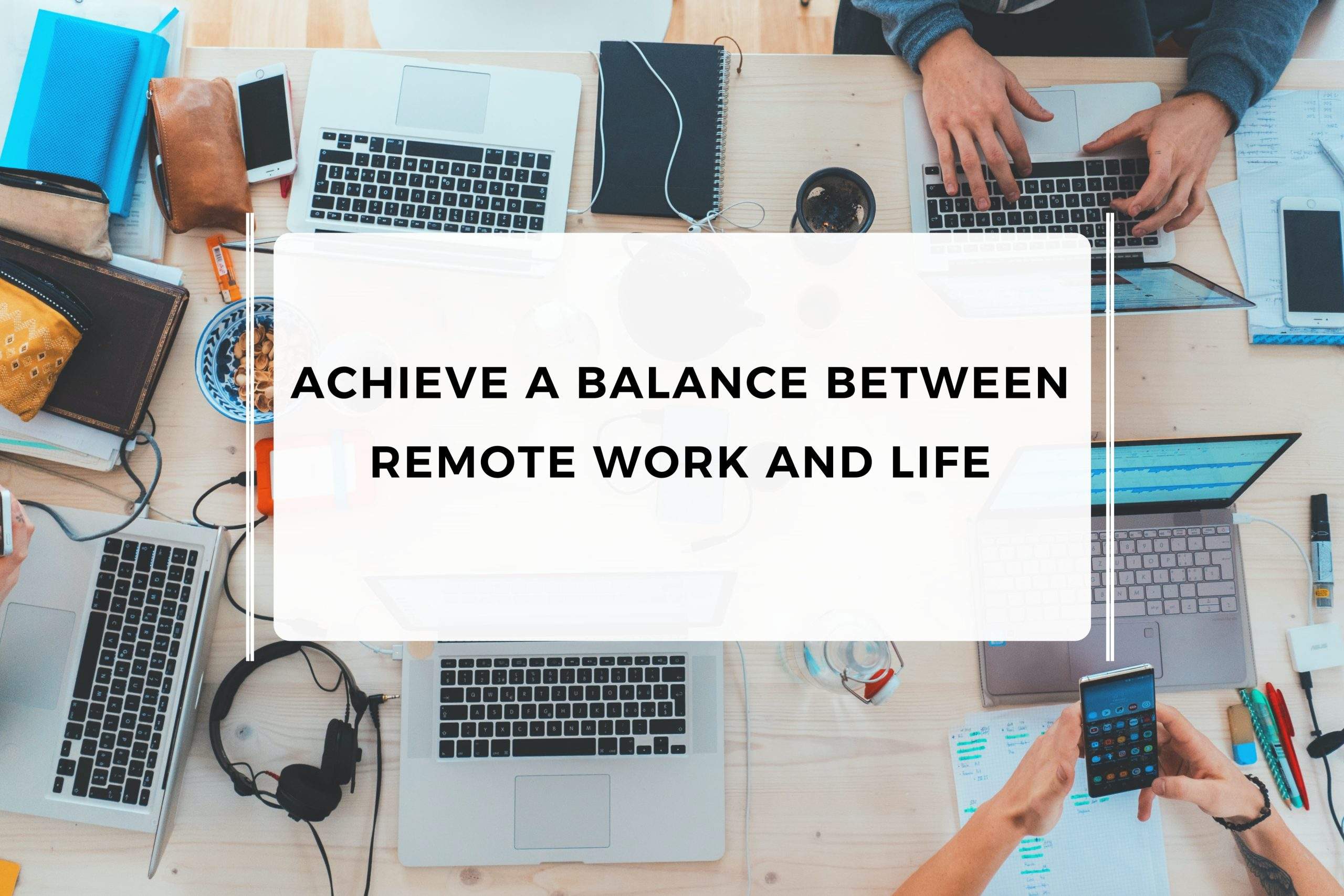In recent years, remote work has become increasingly popular among companies and employees alike. With advancements in technology, it’s now possible for many jobs to be done from anywhere in the world. At the same time personal life has become increasingly important in today’s fast-paced society. With long work hours and the constant connectivity through technology, it can be difficult to separate work from personal life. Therefore, achieving a balance between work and personal life has become necessary to reach integrated success.
In this article, we will explore the benefits of remote work and some tips that help achieve a balance between work and personal life.
What is Remote Work?
Remote work refers to a work arrangement where employees can work from a location of their choice, usually from their home. With the help of technology, employees can stay connected to their colleagues and perform their job duties from anywhere in the world.

Benefits of Remote Work for Employees
Increased Flexibility
One of the main benefits of remote work is increased flexibility. With a remote job, you have the freedom to work from anywhere, as long as you have a reliable internet connection. This means you can work from home, a co-working space, a coffee shop, or even while traveling. Additionally, remote work allows you to create a schedule that works best for you. You can work during the hours when you’re most productive and take breaks when you need to.

Improved Work-Life Balance
Remote work can also improve your work-life balance. When you don’t have to commute to and from the office, you save time and energy. This means you can spend more time with your family, pursue hobbies, or simply relax. Additionally, remote work can reduce stress by eliminating the need to rush to the office or deal with traffic.
Cost Savings
Working from home can also save employees money on things like transportation, meals, and work attire. This can help employees save money and improve their overall financial situation.
Improved Health
Remote work can also have a positive impact on employee health. Without the stress of commuting and the distractions of an office environment, employees can focus on their work and maintain a healthy work-life balance.
Benefits of Remote Work for Employers
Increased Productivity
Studies have shown that remote workers tend to be more productive than their office-based counterparts. This is due to a variety of factors, including fewer distractions and the ability to create a more personalized work environment.
Cost Savings
Employers can also benefit from remote work by reducing their overhead costs. Without the need for physical office space, employers can save money on rent, utilities, and other expenses.
Access to a Larger Talent Pool
Remote work also allows employers to access a larger pool of talent. With the ability to hire employees from anywhere in the world, employers can find the best candidate for the job, regardless of their location.
Improved Employee Retention
Employees who can work remotely are often more satisfied with their job and have a better work-life balance. This can lead to improved employee retention rates, which can save employers time and money on recruitment and training.
The Importance of Work-Life Balance
Improved Mental Health
Achieving a work-life balance can have a significant positive impact on mental health. Long work hours, tight deadlines, and constant pressure can lead to high levels of stress and anxiety. This can result in burnout, exhaustion, and decreased job satisfaction. By setting clear boundaries and establishing a balance between work and personal life, individuals can reduce stress and improve their mental health.
Increased Productivity
Taking time off to focus on personal life can actually increase productivity at work. When individuals are rested, recharged, and happy, they are more likely to be productive and engaged at work. Research shows that employees who have a good work-life balance are more creative, focused, and motivated.
Better Relationships
A healthy work-life balance can also improve relationships. When individuals are stressed and overworked, it can lead to irritability, mood swings, and conflict in personal relationships. By achieving a balance between work and personal life, individuals can nurture their personal relationships and improve overall satisfaction in life.
Tips for Achieving Work-Life Balance
Set Boundaries
Setting clear boundaries is the first step in achieving a work-life balance. This means setting specific times for work and personal activities and sticking to them. For example, if work ends at 5 pm, make it a point to leave work on time and avoid checking work emails or taking work calls after hours.

Make Time for Self-Care
Taking care of oneself is crucial for achieving work-life balance. This means making time for activities that bring joy and relaxation. This can include hobbies, exercise, or simply taking a long bath. Self-care activities can help individuals recharge and improve overall wellbeing.
Prioritize Tasks
Prioritizing tasks is key to achieving a work-life balance. This means identifying the most important tasks and completing them first. It can also mean delegating tasks that are less important or can be done by someone else.
Learn to Say No
Learning to say no is crucial for achieving a work-life balance. This means being comfortable with setting boundaries and declining work or social activities that interfere with personal time. It can also mean asking for help when needed and not taking on too much at once.
Disconnect from Technology
Technology has made it increasingly difficult to separate work from personal life. It’s important to disconnect from technology during personal time to achieve a healthy work-life balance. This means avoiding checking work emails or taking work calls during personal time. It can also mean turning off technology altogether for short periods of time to recharge.
In conclusion, remote work offers numerous benefits for both employees and employers. With increased flexibility, cost savings, and improved productivity, it’s no wonder that more companies are embracing work-from-home policies. As technology continues to advance, we can expect remote work to become even more common in the years to come. Therefore, it’s important to remember that achieving a work-life balance is an ongoing process that requires effort and dedication. With practice and commitment, individuals can achieve a fulfilling and balanced life.

